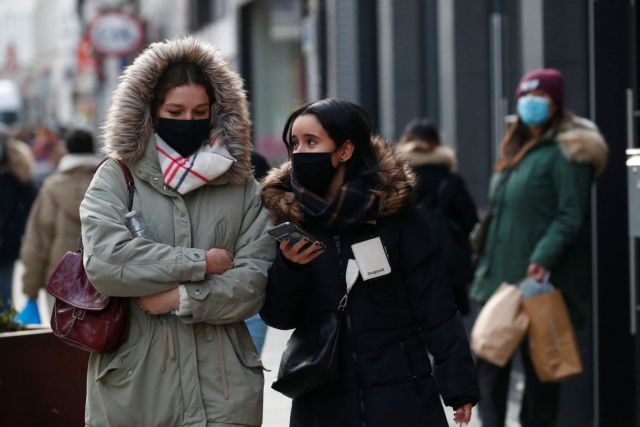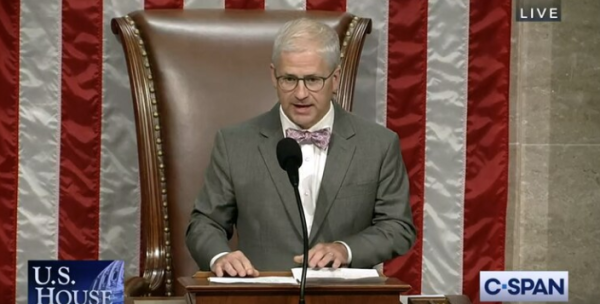
The Omicron sub-variant with the scientific name BA.2, also known as “stealth” or Omicron 2, which is constantly gaining ground in several countries, is not a cause for serious concern, as it is unlikely to “insidiously” create a new catastrophic epidemic. wave and change the course of the pandemic again. It does not appear to cause more serious illness or increase the risk of hospitalization, and the Covid-19 vaccine is just as effective against it as the previous variants, according to the British Health Security Agency.
But because BA.2 seems even more contagious than the original Omicron (one and a half times more than the dominant BA.1 subtype, according to Danish scientists), it can slow the decline in cases in much of the world and therefore prolong the duration of the pandemic. This is a brief overview of the scientific community for BA.2, according to reports in the New York Times and Reuters.
Possible higher case peak
“It is possible that there will be a higher incidence in places where the pandemic has not yet peaked and a slowdown in their declining trend in areas that have already passed the Omicron peak,” said Dr. Thomas Peacock, a virologist at Imperial College.
BA.2 is one of the four “branches” of Omicron, along with the sub-variants BA.1 (dominant so far), BA.3 and BA.1.1.529. The first detection of Omicron was made in South Africa last November and after a few weeks it was realized that there were different versions of Omicron, each of which had some common mutations with the others, but also some mutations unique to each subspecies. The initial Omicron infections were related to BA.1, with BA.2 being rarer and BA.3 even more rare. The latter seems to have come from the infection of the same person with BA.1 and BA.2, with the result that their genes find an opportunity to mix and thus create a new “hybrid” variant of the coronavirus.
Omicron 2 will become dominant
In the first phase, BA.1 surpassed the others with an incidence of 1,000 to 1. However, in recent weeks BA.2 has become more common in countries such as Denmark (where it now accounts for 65% of cases according to the Staten Serum Institute and the 82% according to virologist Trevor Bedford (of the American Fred Hutchinson Center), in Britain (where it is 9% and grows faster than BA.1) and in the USA (where it is at least 8% of cases and the percentage is also increasing rapidly).
“I’m pretty sure BA.2 will become dominant in the United States, but I do not yet know what that could mean for the pandemic,” said Yale University School of Public Health epidemiologist Nathan Grubaugh. He estimated that B.2 would not cause a new big wave, but Omicron’s cases will continue to decrease in the coming weeks, without ruling out a temporary increase, while B.2 is also likely to slow down.
Is there a risk of re-infection with Micron 2?
Omicron – in all its variants – is now the cause of almost all new coronavirus infections worldwide. On January 25, according to the genetic analysis of samples submitted to the international GISAID database, BA.1 was responsible for 98.8% of these infections.
A crucial question, currently unanswered, is whether those who have been infected with the hitherto dominant sub-variant BA.1 of Omicron are at risk of being infected with BA.2 or are protected against it. If not, then according to Dr. Egon Ozer, an infectious disease specialist at Northwestern University School of Medicine in Chicago, “there may be a double wave that will look like a camel’s back, but it’s still too early to tell.” . The good news, however, he stressed, is that “vaccines and boosters will continue to keep people away from the hospital and protect them from death.”
Latest News

Airbnb: Greece’s Short-Term Rentals Dip in March Amid Easter Shift
Data from analytics firm AirDNA shows that average occupancy for short-term rentals dropped to 45% in March, down from 49% the same month last year.

Easter Week in Greece: Holy Friday in Orthodoxy Today
At the Vespers service on Friday evening the image of Christ is removed from the Cross and wrapped in a white cloth

Meloni and Trump Meet in Washington, Vow to Strengthen Western Ties
“I am 100% sure there will be no problems reaching a deal on tariffs with the EU—none whatsoever,” Trump stressed.

ECB Cuts Interest Rates by 25 Basis Points in Expected Move
The ECB’s Governing Council opted to lower the deposit facility rate—the benchmark for signaling monetary policy direction—citing an updated assessment of inflation prospects, the dynamics of underlying inflation, and the strength of monetary policy transmission.

Current Account Deficit Fell by €573.2ml Feb. 2025: BoG
The improvement of Greece’s current account was mainly attributed to a more robust balance of goods and, to a lesser extent, an improved primary income account

Hellenic Food Authority Issues Food Safety Tips for Easter
Food safety tips on how to make sure your lamb has been properly inspected and your eggs stay fresh.

Greek Kiwifruit Exports Smash 200,000-Ton Mark, Setting New Record
According to data by the Association of Greek Fruit, Vegetable and Juice Exporters, Incofruit Hellas, between September 1, 2024, and April 17, 2025, kiwifruit exports increased by 14.2%.

Easter Tourism Boom: Greece Sees 18.3% Surge in Hotel Bookings
Among foreign markets, Israel has emerged as the biggest growth driver, with hotel bookings more than doubling—up 178.5% year-on-year.

Greece to Launch Fast-Track Tender for Offshore Hydrocarbon Exploration
Last week, Papastavrou signed the acceptance of interest for the two Cretan blocks, while similar decisions regarding the two Ionian Sea blocks were signed by his predecessor

American-Hellenic Chamber of Commerce to Open Washington D.C. Branch
AmCham's new office aims aims to deepen U.S.-Greece economic ties and promote investment and innovation between the two countries







![Πλημμύρες: Σημειώθηκαν σε επίπεδα ρεκόρ στην Ευρώπη το 2024 [γράφημα]](https://www.ot.gr/wp-content/uploads/2025/04/FLOOD_HUNGRY-90x90.jpg)




![Airbnb: Πτωτικά κινήθηκε η ζήτηση τον Μάρτιο – Τι δείχνουν τα στοιχεία [γράφημα]](https://www.ot.gr/wp-content/uploads/2024/07/airbnb-gba8e58468_1280-1-90x90.jpg)

























![Airbnb: Πτωτικά κινήθηκε η ζήτηση τον Μάρτιο – Τι δείχνουν τα στοιχεία [γράφημα]](https://www.ot.gr/wp-content/uploads/2024/07/airbnb-gba8e58468_1280-1-600x500.jpg)


 Αριθμός Πιστοποίησης
Αριθμός Πιστοποίησης